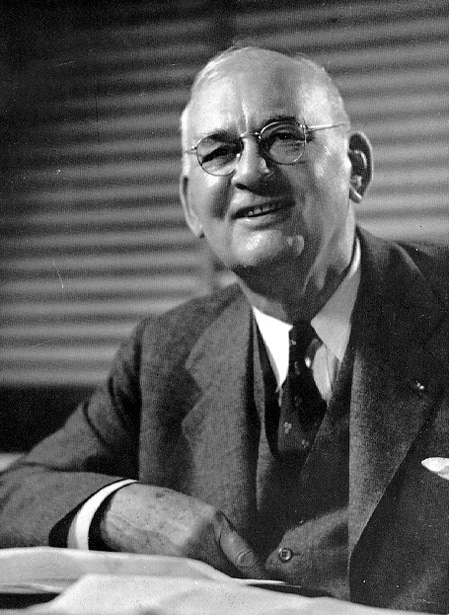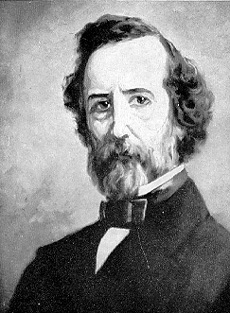We
Start Another Century
The
year 1941 marks the Centennial of Prairie Farmer, America's Oldest Farm Paper.
In its pages from 1841 to 1941 may be found the agricultural, social, and economic
history of the middle west.
Settlers were pouring into the prairie country of Indiana and Illinois, into Southern
Michigan and Southern Wisconsinat the end of the 1830's. Some were artisans, merchants
and traders, but most of them were farmers. Along the Wilderness Road to Cumberland
Gap, through the Blue Grass Country of Kentucky they came, crossed the Ohio River,
moved into Indiana. Some forded the Wabash at Vincennes, and came into Illinois.
Over the old timber-bedded Michigan Road they moved northward across Indiana to
the foot of Lake Michigan, meeting other streams of prairie schooners that had
come west.
These settlers had known no farm land like the prairies. They could guess the
land must be fertile, since the grass grew luxuriantly, but there was no experience,
no equipment for farming such land. Grass roots made a mat a foot and a half deep.
Crude plows would not turn this primeval turf.
Stray cattle roamed everywhere, a menace to the pitiful hand-planted fields of
grain. Wild hogs, coyotes, the sweeping wind, the myriadsof green-head flies that
would kill a horse, put a test on the stoutest hearts. Malaria and the "shakes"
came from clouds of mosquitoes on stagnant water. Rattlesnakes seemed everywhere
underfoot. And when a prairie fire came over the horizon with the speed of the
wind, it seemed as if the end of the world had come.
The prairie pioneers had to forget all they had known of farming back east, and
learn anew how to farm on the prairies.
There was no experiment station bulletin for reference.
There was no publication that understood their problems.
So it was that one hundred years ago, in 1841, John S. Wright, a man of extraordinary
vision and understanding and zeal, led a progressive group of men in founding
an agricultural society and establishing a paper that should serve the farms of
the prairies.
That paper was Prairie Farmer, now a century old.
Through a century of service, Prairie Farmer has worked shoulder to shoulder with
farmers as these prairies have become the most fertile in the world.
It has seen the bent backs of men straightened as one new machine after another
has lifted the load.
Prairie Farmer has watched as the rutted trails of those days have changed to
thousands of miles of modern paved highway. It helped to promote the building
of railroads.
When pioneer children had little or no school facilities, the sturdy young publication
fought for a new and untried idea, free schools and universal education for every
child.
It was still young when that strange new invention, the telegraph, began to bring
messages by "lightening," and the first telegraph office in Chicago
adjoined the office of Prairie Farmer, in 1848.
Such an idea as a college of agriculture, or an experiment station was utterly
remote, until in 1852 a letter to the editor of Prairie Farmer suggested the idea.
Steadfast work and campaigning brought the establishment of such schools by a
federal law signed ten years laterm in 1862. It was signed by one who had reason
to know the need for such education, one who knew Prairie Farmer, the Prairie
President, Abraham Lincoln.
New crops, improved live stock, new economic conditions came. Cities, lifted on
the broad shoulders of a powerful agricultural area, grew great. Agriculture came
of age.
With reverence, we of Prairie Farmer turn the pages of a hundred annual volumes
in which this amazing story is told. We read how Prairie Farmer made the first
attempt to harness radio for farm service, when messages were still ticked out
in dots and dashes.
Then came WLS, seventeen years old in 1941, made a part of Prairie Farmer service,
using most modern equipment and methods,but dedicated to century-old ideals.
May we of Prairie Farmer-WLS who carry on into the new century, serve agriculture
as truly and well as those who charted the first hundred years.


